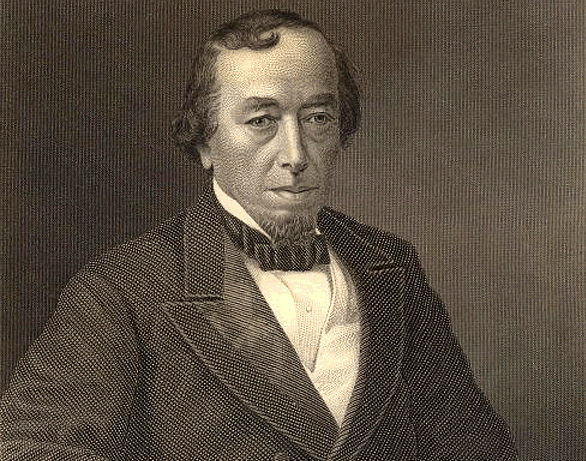Benjamin Disraeli
Maestro of Empire

God often names things what they are. Adam's name literally means "red earth," the substance from which God formed and shaped the first man (Genesis 2:7).
God gave Abram a name—Abraham (Genesis 17:5)—that connoted his fatherhood—"father of a multitude" (Genesis 17:4-6). Solomon, whose name derives from the Hebrew root word for "peace," presided over one of the most peaceful periods in Israelite history (1 Kings 4:24).
Is it so strange to think that God might still provide us similar signposts along the way through our history? (Malachi 3:6). One possible example of this is in the development of the British Empire and a remarkable man named Benjamin Disraeli (1804-1881).
This son of a Jewish family that had converted to Christianity rose to the pinnacle of British political life and served twice as prime minister (1868 and 1874-1880). Historians sometimes describe him as the "maestro of empire," the British statesman who gave the late-19th-century British Empire a renewed emotional force.
During Disraeli's second administration England underwent a revival of interest in empire and territorial expansion. Acting boldly and with remarkable independence, Disraeli paid nearly four million pounds—money borrowed from the Bank of Rothschild with the British government as security—for the purchase of 44 percent of the shares of stock controlling the recently constructed Suez Canal (1869). Otto von Bismarck of Germany, the "iron chancellor," aptly described the passageway as the spinal cord of the British Empire.
The next and perhaps most grandiose expression of Disraeli's imperial policies was in connection with the linchpin of the Empire, India itself. On May 1, 1876, Disraeli saw that the Royal Titles Bill made Queen Victoria empress of India. In January of the next year, with fanfare and ceremony, the viceroy of India pronounced Victoria empress at a grand celebration in her honor. Later that same year Disraeli annexed the mineral-rich Transvaal in South Africa. Three years later, at the Congress of Berlin, he acquired the strategic outpost of Cyprus in the Mediterranean.
In a remarkable coincidence one of the chief architects of the British Empire, Benjamin Disraeli, literally bears the name of Israel. Or is it coincidence? Given what we know about the promises to Jacob's end-time descendants and the timing of the issuance of the physical, material and national promises to Abraham, the name Disraeli reads more like a providential signpost.
